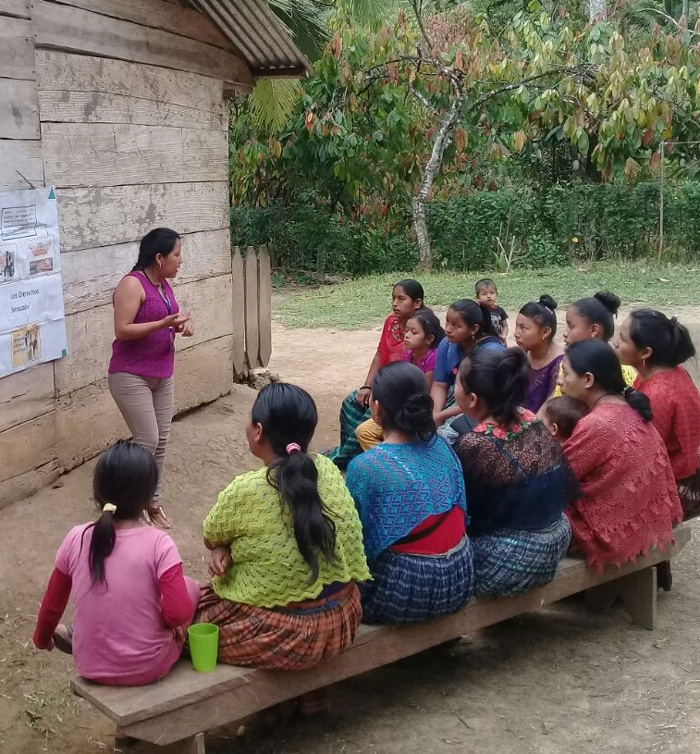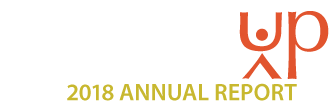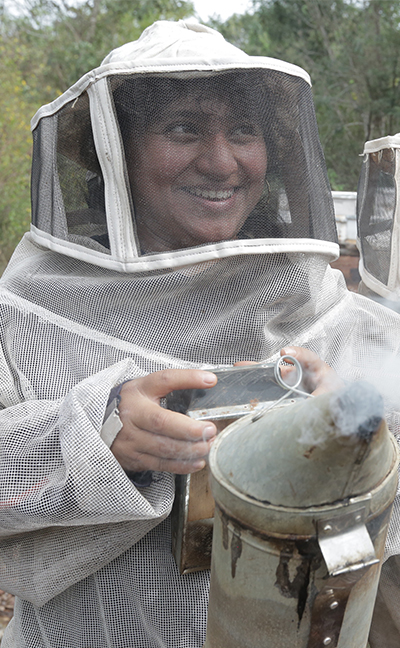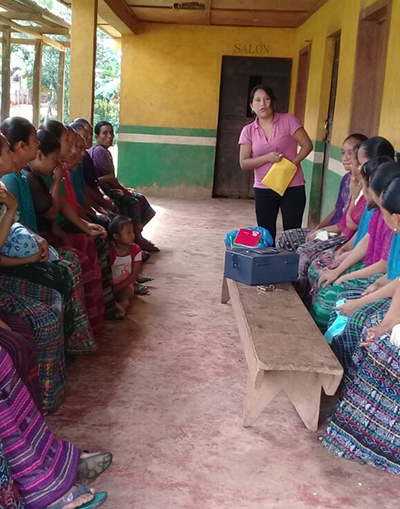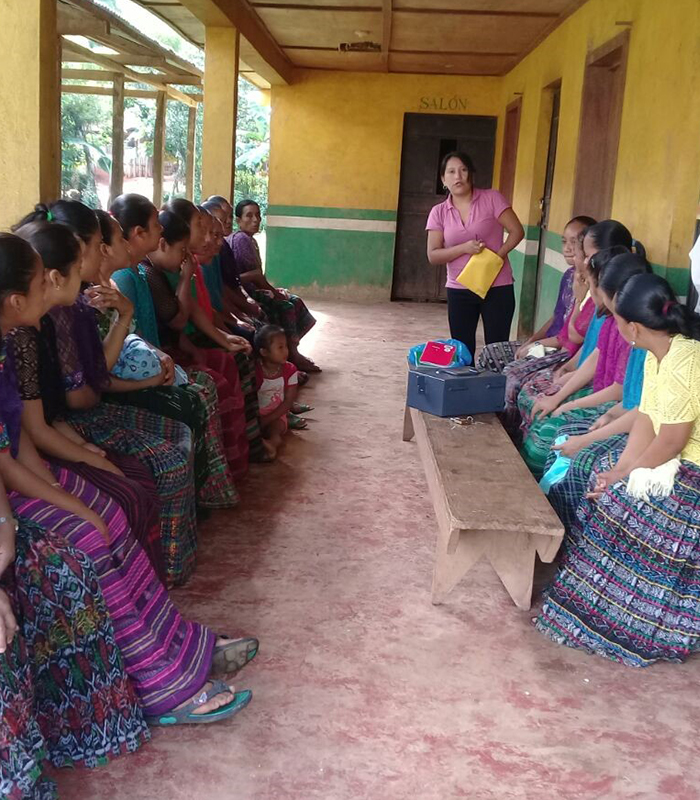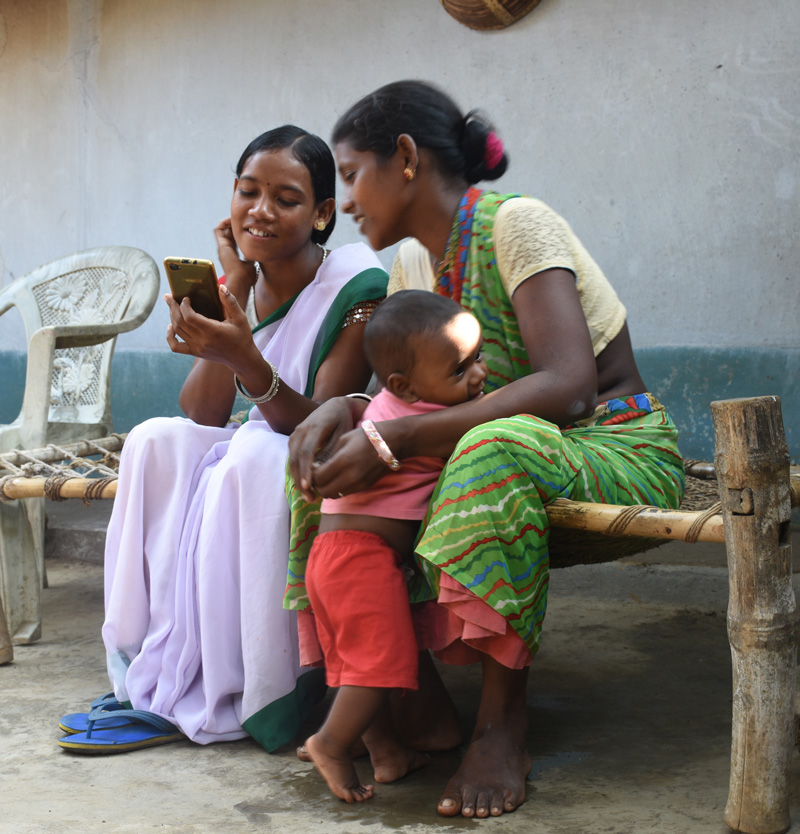Americas
Americas
Vision and Systems Change
Trickle Up’s work in the Americas aims to influence government service delivery systems relevant to the poorest and most vulnerable, particularly including indigenous peoples and persons with disabilities. The research and evidence produced in the Americas is being applied to new program designs worldwide.
Adapting programs for Indigenous People
Trickle Up’s work with indigenous peoples in Latin America is influencing future programs with indigenous peoples in India, which will apply a rights-based perspective rooted in established indigenous social movements in Latin America. Trickle Up’s work in Vietnam with ethnic minorities will also benefit from work in the Americas.
Adapting programs for People with Disabilities
Disability inclusion programs and experience working with Disabled Persons Organizations (DPOs) in Latin America is foundational for the recent Light for the World partnership in West Africa focused on people with disabilities.
Building next-generation technology to fight poverty
Trickle Up’s work in Latin America also paved the way for Digital Monitoring and Evaluation (M&E), an experience that is informing the digitization of our M&E structure in other regions.
Trickle Up is likewise drawing on lessons from other regions to inform future projects in Latin America. India’s successful MPowered program, which uses digital technology in the form of an app to facilitate coaching, is being adapted for Trickle Up’s work in Latin America.
COUNTRY
1425
PARTICIPANTS
15
SHGs / SAVINGS GROUPS
44
COACHES
9
PARTNERS
Project Highlight:
Women’s Empowerment and Socio-Economic Inclusion of People with Disabilities in Guatemala
Through the project “Women’s Empowerment and Socio-Economic Inclusion of People with Disabilities in Guatemala” Trickle Up and the municipalities of Ixcán, Chahal and Cahabón provided support to 1,100 young women and people with disabilities and their families in 101 rural communities of El Quiché and Alta Verapaz to help them overcome extreme poverty and achieve economic resilience.
In 2017 and 2018, through agreements with governments, young women and people with disabilities from rural communities were selected and participated in training on issues of gender equality, sexual and reproductive health, and the inclusion of people with disabilities. They developed productive livelihood activities and joined into savings groups. receiving also a seed capital with which they created ventures to generate sustainable livelihoods.
53%
of households reported reduced hunger.
50%
of people with disabilities reported feeling increased self-esteem, visibility, and independence.
78%
of participants improved their knowledge of sexual and reproductive health.
PRODUCTIVE ACTIVITIES
81%
of participants used their earnings to cover both personal and family expenses, extending the project’s benefits to household members.
SAVINGS
81%
of participants plan to continue saving with their groups after the first year, an important indicator of sustainability.
– Wilma Teresa Chi Santiago of Cisteil, Yucatán, Mexico
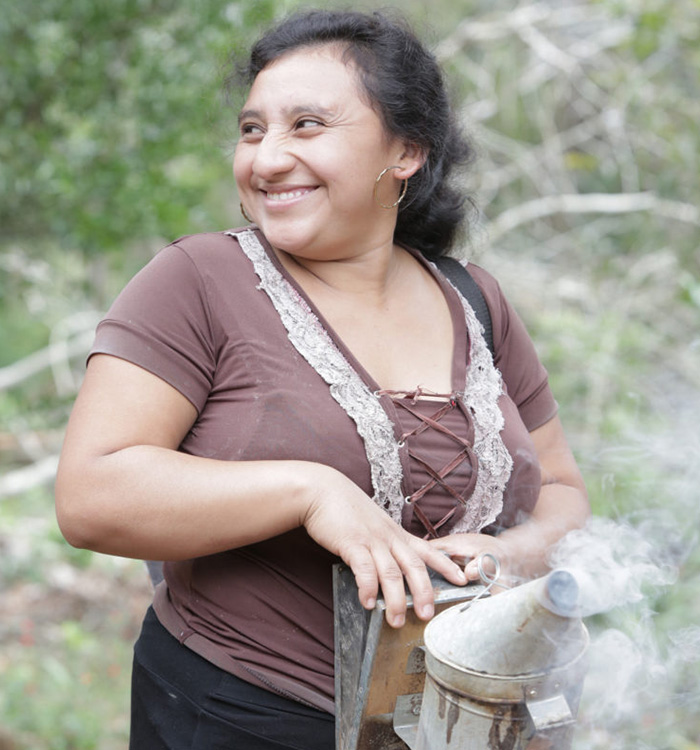
– Wilma Teresa Chi Santiago of Cisteil, Yucatán, Mexico
Wilma Santiago and her family struggled to make ends meet. She was unable to pay for her son’s medical expenses and maintain their home and food security. As a part of the Maya Yucateco indigenous group, Wilma and her community have faced discrimination, illiteracy, and barriers to education for generations. Through financial help from Trickle Up, entrepreneurial coaching, and support from the members of her savings group, Wilma drastically changed her family’s future.
– Ingrid Pop
Every weekday, Ingrid Pop, a young social worker and Trickle Up coach, visits remote rural communities in Guatemala, where she provides technical and emotional support to indigenous women and people with disabilities living in extreme poverty.
Ingrid—like all Graduation coaches—works to increase the possibilities and opportunities for participants to graduate out of extreme poverty by focusing on their individual needs.
– Ingrid Pop
